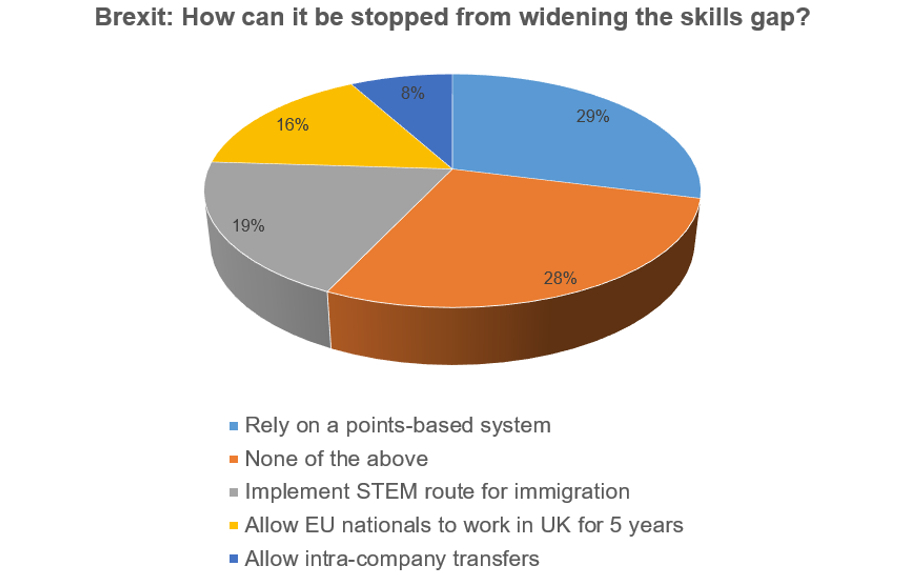The poll was prompted by industry concerns about hiring British recruits with the necessary skills for their operation. Consequently, a number of employers look to recruit from other EU nations, a situation that many would like to preserve. Following a survey of 243 UK companies, EEF argue that post-Brexit restrictions to migration will see skills shortages become worse.

From our poll, a total of 29 per cent agreed that a points-based system should be introduced to ensure the flow of skilled workers.
Just under a fifth (19 per cent) thought it wise to implement a STEM route for immigration, 16 per cent thought EU nationals should have a five-year window to work in Britain, and eight per cent agreed that inter-company transfers could help plug the skills gap.
The remaining 28 per cent elected to choose the ‘None of the above’ option, and the comments that followed point to the continuing disquiet that surrounds Britain’s ability to produce its own skilled STEM-qualified workforce.
“The only good long-term solution is training British people,” said Mohammed Amin Abdullah. “Plugging the skills gap with ever more immigration is not a viable option.”
Part of 20 Cent’s comment said: “Longer term it is essential to train and retain future workers in the skills the country needs for future stability, and governments of all shades should stop trying to outdo each other by getting as many graduates through any courses they can simply to boost the numbers.”
Andy Smith added: “Better school subjects. Better training in UK industries. Better Apprenticeship schemes. Most UK engineering companies have been reluctant to improve their training provisions. We need a much higher investment in training from these companies.”
As The Engineer has been reporting for many years, the situation surrounding skilled STEM-recruits does not appear to be abating, which will likely necessitate the acquisition of skilled workers from outside Britain’s borders, starting with our neighbours in mainland Europe.
What do you think? Continue to let us know via Comments below.





April 1886: the Brunkebergs tunnel
First ever example of a ground source heat pump?